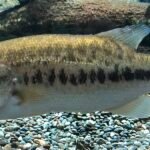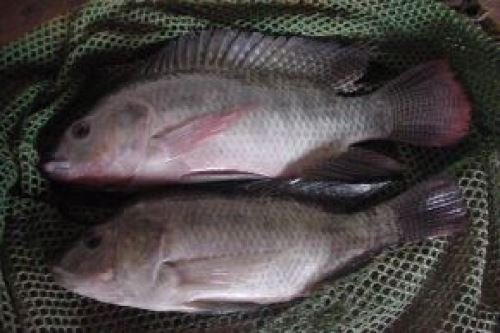Finland.- Cohort after cohort, fishing typically removes large fish from the population and can lead to rapid evolutionary changes in exploited fish populations. A new study from the University of Turku, Finland, shows that removing the largest individuals from the population can lead to massive gene expression changes in an experimentally exploited fish population. The study was funded by the Academy of Finland.
During the last two decades, there has been a lot of discussion on size-selective fishing causing genetic changes in exploited populations in contemporary timescales. Now, researchers have shown that fishing can cause expression changes in thousands of genes and that these changes can at least partly be associated with changes at DNA level.
“Removing the largest individuals from the experimentally exploited populations induced differences in the expression of more than 4,000 genes after five generations of size-selective harvesting,” says postdoctoral researcher Silva Uusi-Heikkilä from the University of Turku.
The harvesting experiment was done in collaboration between the University of Turku and the Leibniz Institute of Freshwater Ecology and Inland Fisheries, Berlin. For five generations, experimental zebrafish populations were harvested by using two harvesting strategies: removing the largest individuals and removing individuals randomly with respect to body size. After harvesting, the populations were allowed to recover for six generations.
“Changes in gene expression help fish to adapt to different selective pressure,” Uusi-Heikkilä says. “It’s noteworthy, however, that the differences in expression pattern between the harvest treatments remained after the recovery.”
In addition to the changes in gene expression, the expression variance was also affected by fishing: fishing decreased the variance. Gene expression variation can be important because it may help fish to adapt to changes in the environment and the climate.
“After the recovery period, the gene expression variance increased but only in randomly harvested fish. The variance continued to decrease among fish where the largest individuals had been removed,” Uusi-Heikkilä says.
Reduced variation caused by size-selective harvesting in exploited populations can slow down the recovery. “Moderate fishing pressure combined with protection of large individuals may advance the recovery of fish populations.”
Stay Always Informed
Join our communities to instantly receive the most important news, reports, and analysis from the aquaculture industry.
Source: University of Turku press release
Editor at the digital magazine AquaHoy. He holds a degree in Aquaculture Biology from the National University of Santa (UNS) and a Master’s degree in Science and Innovation Management from the Polytechnic University of Valencia, with postgraduate diplomas in Business Innovation and Innovation Management. He possesses extensive experience in the aquaculture and fisheries sector, having led the Fisheries Innovation Unit of the National Program for Innovation in Fisheries and Aquaculture (PNIPA). He has served as a senior consultant in technology watch, an innovation project formulator and advisor, and a lecturer at UNS. He is a member of the Peruvian College of Biologists and was recognized by the World Aquaculture Society (WAS) in 2016 for his contribution to aquaculture.







